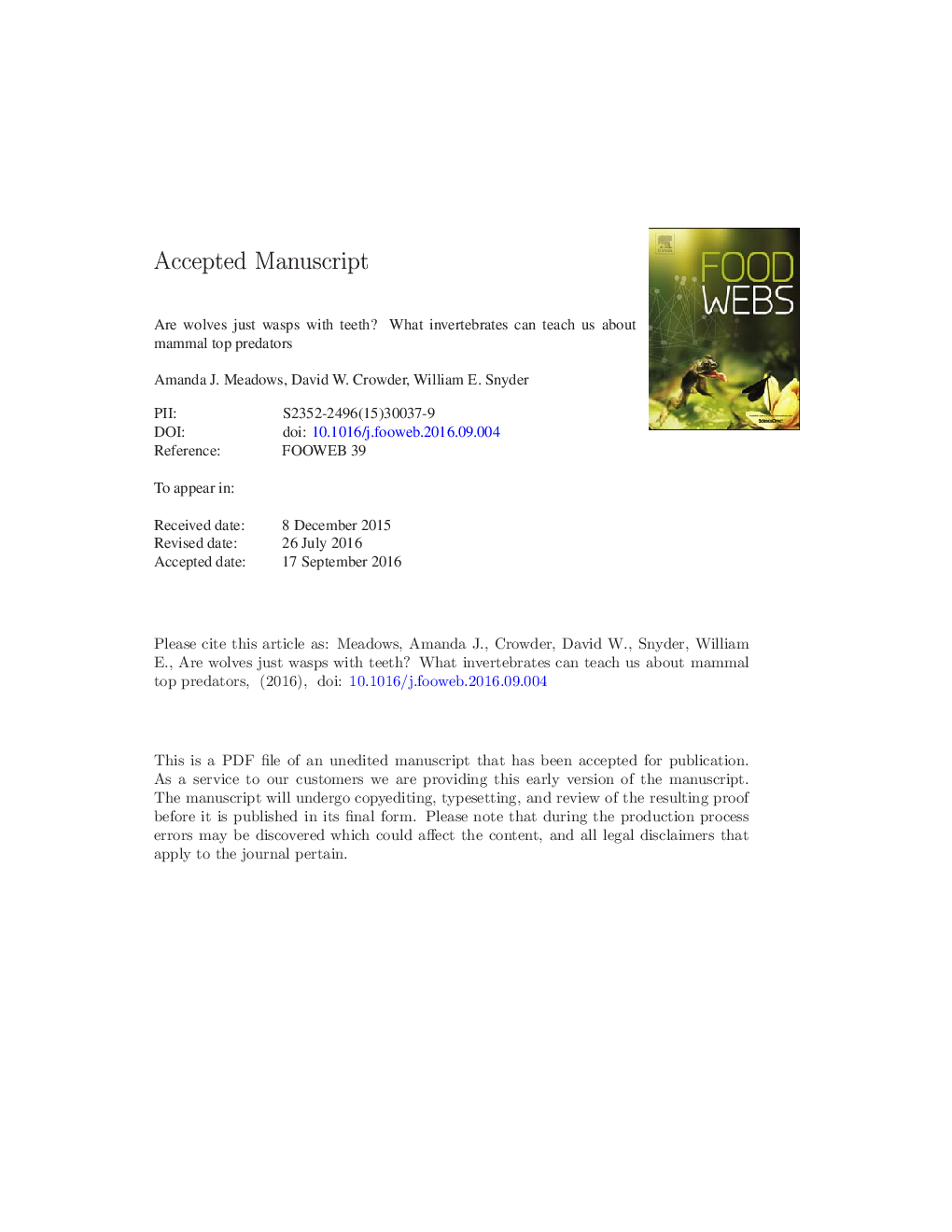| کد مقاله | کد نشریه | سال انتشار | مقاله انگلیسی | نسخه تمام متن |
|---|---|---|---|---|
| 5759820 | 1623633 | 2017 | 44 صفحه PDF | دانلود رایگان |
عنوان انگلیسی مقاله ISI
Are wolves just wasps with teeth? What invertebrates can teach us about mammal top predators
ترجمه فارسی عنوان
آیا گرگ ها فقط دندان ها را می پوشند؟ چه بی مهرگان می تواند ما را در مورد شکارچیان بالا پستاندار آموزش دهد
دانلود مقاله + سفارش ترجمه
دانلود مقاله ISI انگلیسی
رایگان برای ایرانیان
کلمات کلیدی
بیننده متمایز بودن صفات، آبشار طوفان شکارچی شکار، بستگی به زمینه، حفاظت،
موضوعات مرتبط
علوم زیستی و بیوفناوری
علوم کشاورزی و بیولوژیک
علوم کشاورزی و بیولوژیک (عمومی)
چکیده انگلیسی
Manipulative experiments are rarely possible with large predatory mammals. However, field manipulations of predatory arthropods are common and could provide general insights into top-predator impacts. For example, observational studies suggest that conserving dingoes might indirectly benefit Australian small mammal populations. This is consistent with the effects of praying mantids in eastern U.S. meadows, where mantids indirectly benefit smaller herbivores by eating herbivorous competitors and dangerous mesopredators. However, in other cases predatory arthropods yield only occasional or context-dependent benefits to smaller prey, or even harm them; this suggests caution in assuming universal benefits of dingo conservation. Likewise, some experimental manipulations of predatory arthropods suggest that increasing plant diversity could protect African wild dogs from larger predatory mammals that steal their prey. However, other studies suggest that mesopredators may actually be harmed when the foraging environment becomes more complex. Finally, work with predatory spiders supports the idea that wolves, newly restored to the western U.S., might indirectly benefit some native plants by altering herbivore foraging patterns. However, other work suggests indirect, behaviorally-mediated effects on prey and plants that fall well outside of this type of simple, linear predator-herbivore-plant interaction chain. In summary, top predators that differ in size by orders of magnitude might impact their communities in broadly similar ways. At the same time, work with predatory arthropods indicates that subtle differences in ecological context can yield broadly different outcomes that also must be considered during top-predator conservation.
ناشر
Database: Elsevier - ScienceDirect (ساینس دایرکت)
Journal: Food Webs - Volume 12, September 2017, Pages 40-48
Journal: Food Webs - Volume 12, September 2017, Pages 40-48
نویسندگان
Amanda J. Meadows, David W. Crowder, William E. Snyder,
